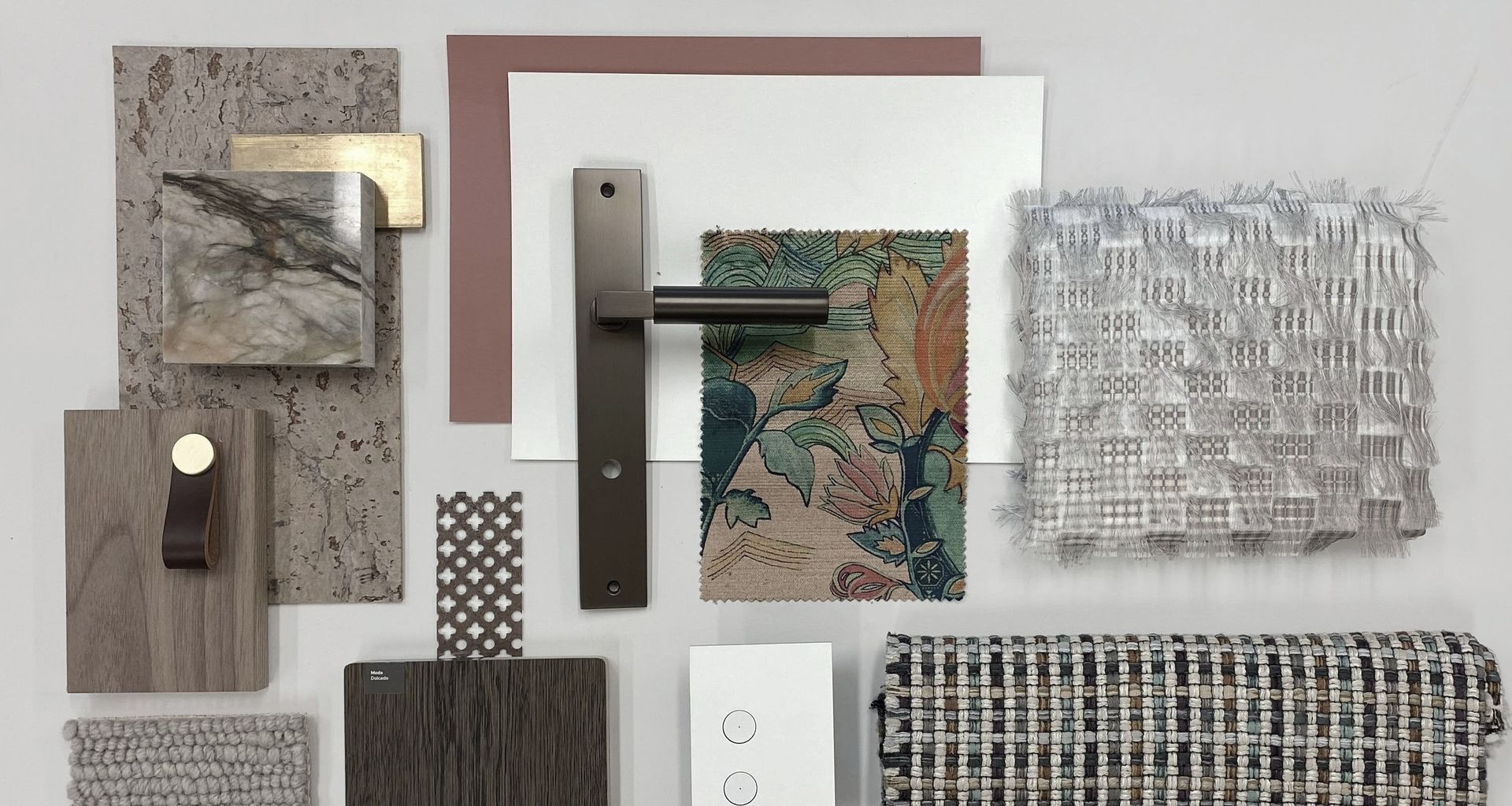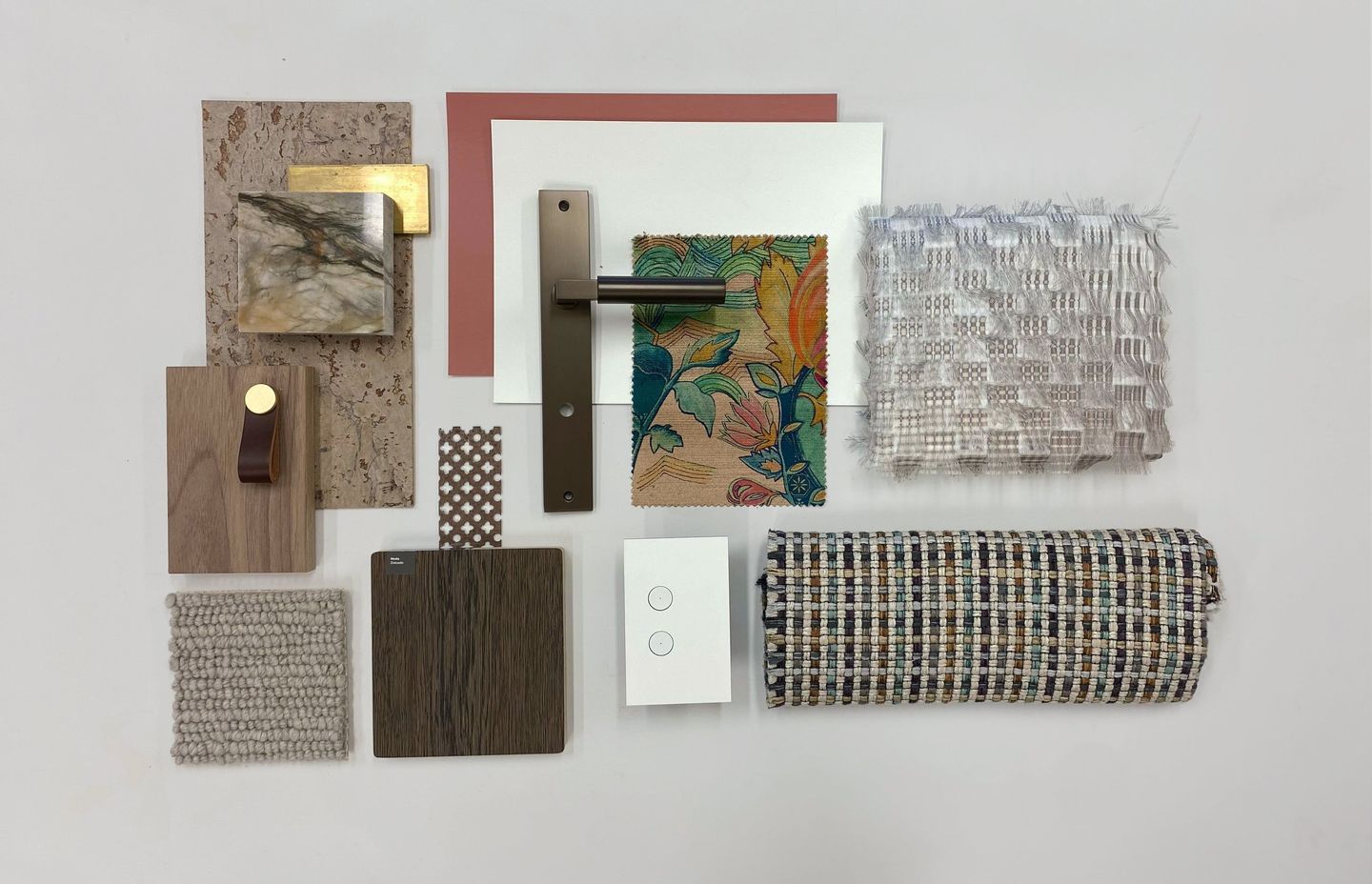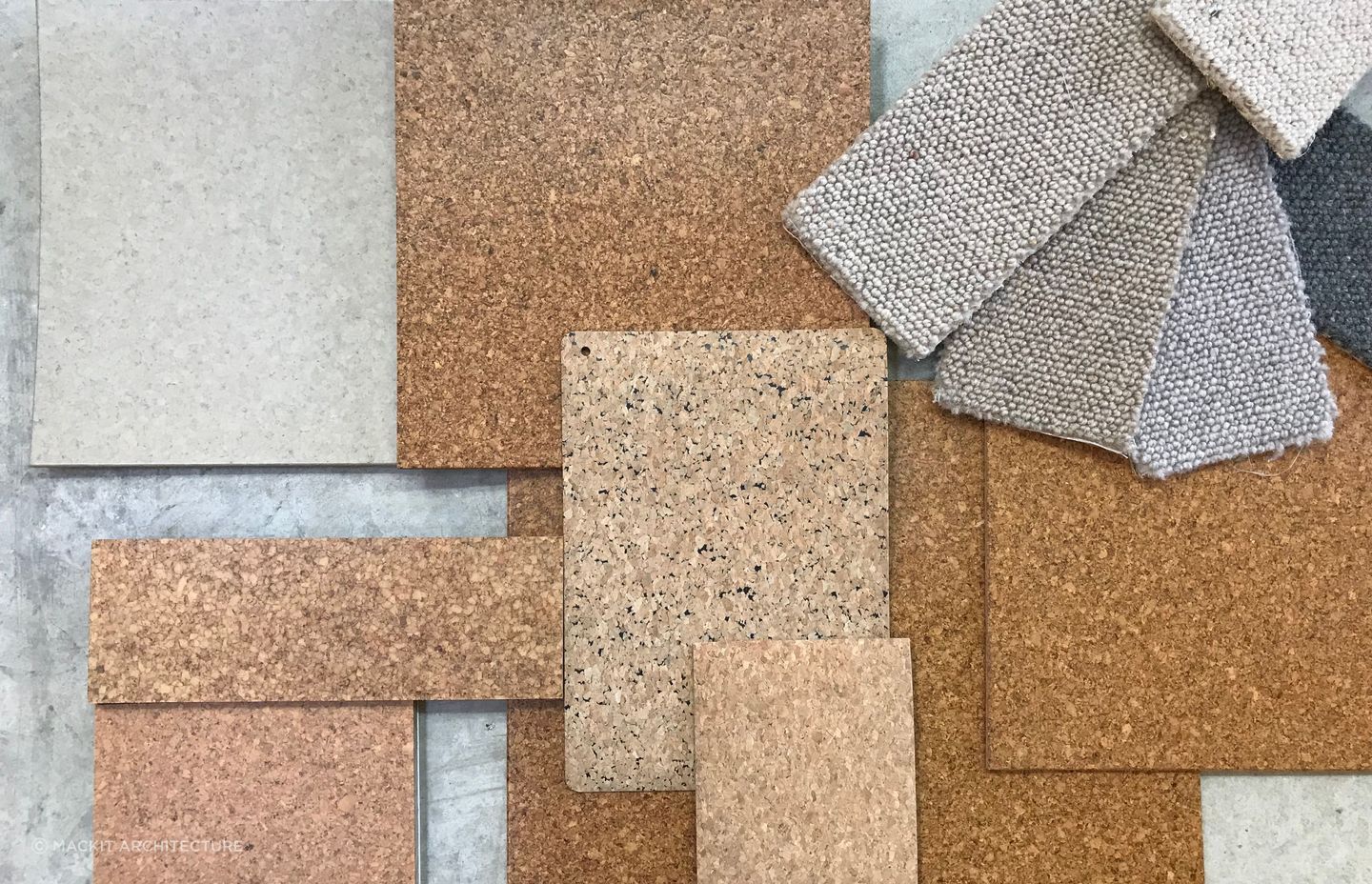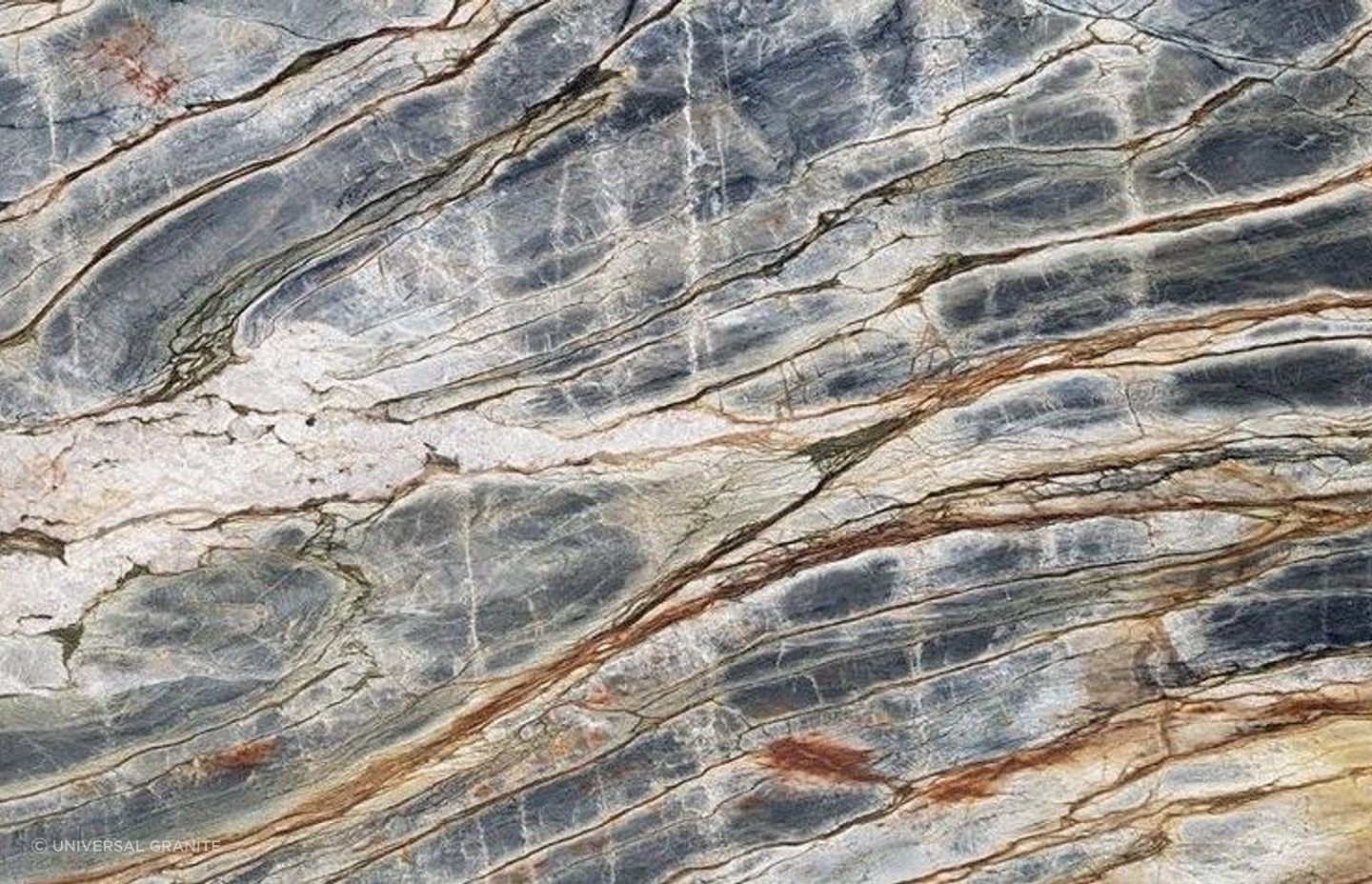'Rich Earth' materials board styled by Hayley Dryland
Written by
06 July 2021
•
4 min read

Tell us about your materials board.
The board is tactile and a little bit fun. It is rich in earthy textures and tones, but paired with rich fabrics that communicate an overall calm, yet invigorating feeling.
How do you put a materials board together? What do you consider?
When I typically start my mood boards, they start with that little piece of bravery—it could be a really beautiful piece of stone, or an amazing piece of fabric. It tends to start with something quite textural—it’s the statement. Then I build from that.

What is the “piece of bravery” that kicked off your materials board?
When I put this board together I was really excited by a new cork wall covering by Dekwall. There’s all these benefits to it, in terms of it improving acoustics and visually adding warmth and texture. It reminds me of a burl timber—it looks like a peeling off a cork tree. It’s so yummy! In the cork it’s got blue-greys, greige, and blush. These colours were a starting point that drew me to the patterned velvet fabric. It went from a fairly neutral base into these jewel-like tones, I’ve upped the ante as I’ve gone along.
Should you mix up many different materials?
On the board I’ve shown two timbers, for flooring and cabinetry along with a wall of heavily textured cork. I’ve used both brass and bronze metal finishes for cabinetry and door hardware. I don’t believe in having the same material throughout a house, unless the particular project deemed that necessary.
In spite of the combination of numerous materials and textures, it’s still very neutral because they are the foundational elements of the room—they’re the expensive part that you’re not going to change very often.

How do you incorporate different colours?
When I’ve moved into the idea for the living spaces, I’ve got this beautiful velvet that has all these jewel-like tones in it and a woven fabric that has six different colours. For a client, I will pull out a colour that they’re drawn to [for the room]. There’s an aubergine, a soft duck-egg, a mustard, you could choose any one of those colours and that could be the hero.
For the main colour I’ve used Resene’s Half Rice Cake, which is a soft, warm, chalky white. I’ve paired it with a terracotta-watermelon, called Copper Rust from Resene, which is a hue I’ve taken from the cork wall-covering. It’s got a pink undertone to it and it would make an amazing feature wall in a hallway or a powder room.
If someone is afraid to use bold colour, could they still use your materials board as inspiration?
Absolutely. The things that jump out at you are the fabrics in bold colours and patterns. If you take them away, it’s a neutral space.
How do you choose paint colours?
There’s thousands of colours in the Resene colour range, so that’s what I’d choose last. The hardest things to find are a stone you fall in love with or a beautiful rug, or a fabric that you just can’t live without, so that’s typically where I start, then later we can pull out paint colours from those foundational elements.

Hayley's top tips for putting together a materials board:
- Start with a bold or "brave" material choice
- Pull out the colours and tones in that product as a starting point to choose other materials
- Keep the foundational pieces fairly neutral
- Mix up different materials and textures (stone, metals, timbers and fabrics)
- Don't be afraid of incorporating bold, patterned fabrics
- Add the paint colours in last
If you need help putting together materials for an interiors scheme, engaging an interior designer is a great place to start. Fill out your details below to get in touch with Hayley to discuss your interior project.